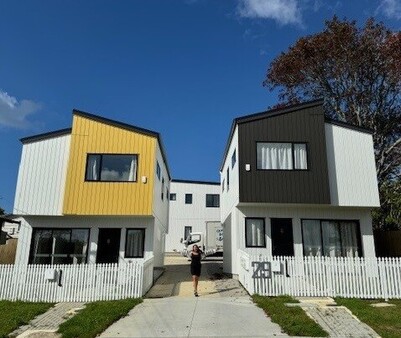The current housing crisis is making life hard for many New Zealand whānau, but for teen parents – who cannot legally sign a tenancy agreement until they are 18 – having nowhere to call home has been a source of stress and anxiety for years.
“They’re living in cars or sleeping on couches in really unhealthy environments, says Cindy Kawana, Housing Lead and Whānau Violence Advisor for Auckland teen parent support organisation and long-time Todd Foundation funding partner E Tipu E Rea.
Cindy says the lack of secure housing creates other problems for these very vulnerable young people and their pēpi.
“If you don't have an address then you can't get a benefit. There are lots of things you can’t get access to without an address.”
Now, thanks to funding from the Todd Foundation, E Tipu E Rea is in the process of becoming a Community Housing Provider, with plans underway to eventually build six social houses on a site they have been given in the Auckland suburb of Panmure.
“We know that that's not going to be enough, but it’s really exciting to think we can get some houses – it will be a game changer.”
In the meantime, E Tipu E rea has been approved as a Transitional Housing Provider which means the rangatahi and pēpi they work with will have short-term access to seven houses owned by Kainga Ora. The hope is that with the right wraparound support these transitional houses will provide a stepping stone to permanent accommodation.
The Foundation has supported E Tipu E Rea on and off since it began as an organisation called Thrive in 2011. More recently, E Tipu E Rea has evolved into a kaupapa Maori organisation with close ties to local iwi Ngati Paoa.
The organisation now has 35 staff who work in three teams providing support focused on a child’s first 2000 days. This ranges from midwifery and other health support through to helping the young parents they work with to get education and training and find employment.
Cindy says they have long had a dream of becoming a community housing provider and the Todd Foundation funding has made it possible for them to embark on this process.
“The Todd grant has been so valuable because it meant I could be employed to focus on getting approval as a transitional housing provider with the long-term goal of becoming a community housing provider. It takes time, and I have been able to put in the time to do it.”



